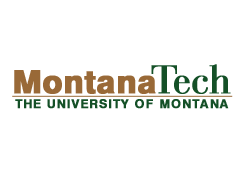Below is a summary of the abstract you submitted. Presenting author(s) is shown in bold.
If any changes need to be made, you can modify the abstract or change the authors.
You can also download a .docx version of this abstract.
If there are any problems, please email Dan at dar78@pitt.edu and he'll take care of them!
This abstract was last modified on May 24, 2024 at 4:32 p.m..

Modeled upon Dr. Graham Hatfull’s programs at the University of Pittsburgh, Montana Technological University has provided phage discovery outreach to K-12 teachers and students across Montana since 2005, with undergraduate students serving as near-peer mentors. Origins and evolution of the program, its highlights, project obstacles, adaptations, and successes offer SEA-PHAGES faculty a road map for outreach to K-12 classrooms.
Starting with one teacher’s classes, the project grew by collaborating with Montana Tech’s Center for Education and Environmental Studies and incorporated both formal teacher professional development and student research opportunities. Sixty Montana K-12 teachers and 13,000 students have participated, with >130 phages discovered and 25 genome annotations published in GenBank, thanks to HHMI SEA-PHAGES database and DNA sequencing resources along with support from the National Institutes of Health (NIH). Nine years of funding from NIH’s Montana IDeA Network of Biomedical Research Excellence (INBRE) led to two 5-year NIH Science Education Partnership Award (SEPA) grants, "BRIC: Bringing Research Into the Classroom,” and “PHAGES: Phages Helping Acquire Genuine Experiences in Science.”
The BRIC project’s goal was to equip teachers with the knowledge, skills, and dispositions to provide quality health science research opportunities for students. Two summer research academies, two graduate courses, independent research projects, and four years of 3-day classroom phage discovery experiences were provided to 28 participating teachers. Following BRIC, the PHAGES project focused on program sustainability. Six BRIC teachers became PHAGES teacher leaders; each recruited a mentee teacher from their school. Extensive professional development and the establishment of satellite labs in remote schools enabled PHAGES teachers to independently prepare and deliver 3-day phage discovery experiences in their classrooms in 2023 and 2024. Partnerships with Montana State University offered 30 students who participated in classroom research paid summer research internships at both universities, culminating in public symposia featuring student poster presentations. A recently acquired multifunctional transmission electron microscope from National Science Foundation Major Research Instrumentation grant support is transforming teacher and student research experiences, allowing them to image the student-discovered phages.
Program evaluation methodologies and measured impacts on participating students and teachers will be presented, along with synergistic effects on faculty career paths and institutional culture.

